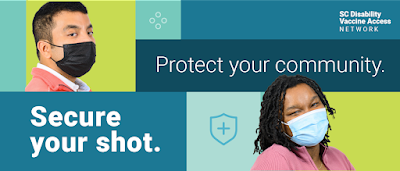You may have heard about the end of the Federal COVID-19 Public Health Emergency, but do you know what that means for you?
- The White House has announced that the federal government will end its declared COVID-19 Public Health Emergency on May 11
- Ending the declaration will end the federal government's spending towards programs that promoted vaccination and other efforts to keep American's afloat during this time
COVID-19 Vaccine Schedule Reminders
- There is a COVID-19 vaccine and bivalent booster available to everyone over 6 months of age
- Age and the brand type used for the primary vaccine series will determine an individual's timeline
- Immunocompromised people will get additional doses that will impact their timeline
- The mRNA bivalent booster replaced the mRNA monovalent booster last fall
- Everyone over 6 months old is encouraged to get their primary vaccine and bivalent booster
Not sure when your next shot is?
Use this tool from our website to help:
What will change
- COVID-19 Vaccine, Treatments, and Testing will now come at a cost
- People without insurance may have to pay out of pocket
- Non-citizens who were able to secure the vaccine at no cost may have to pay out of pocket
- People with private healthcare plans could see more costs
- Care that prevents getting very sick, like vaccines, are likely to be covered by insurance
- Private insurance deductibles are likely to be charged for treatment and testing
- A doctor will be required to prescribe treatments and testing to receive these benefits
- Some cost estimations of the vaccine are over $100
- Some news reports that there will be options for low to no cost COVID-19 vaccines
Changes to Medicaid and Medicare
- Vaccines will remain at no cost to beneficiaries, but cost-sharing is expected for testing and treatments like anti-viral drugs, like Paxlovid
- Medicare coverage requirements that were waived during the emergency will return
- Medicare prescription drug benefits will no longer allow beneficiaries to get extended supplies of drugs
- In December Congress voted that, starting in April, some states will start kicking people off of expanded Medicaid benefits. It's possible that 15 million people will lose health coverage
What won't change
- Some people who lose their Medicaid access in April will qualify for plans provided by the Affordable Care Act (but not all)
- Medicare beneficiaries and people in high-deductible health plans will have eased access to telehealth through the end of 2024 due to an extension provided by Congress
- The FDA will still have the power to authorize vaccines, tests, and drugs on an emergency basis
- There are many other programs that will be influenced by this change, including nutrition assistance programs, immigration policies, mental health service funding in public schools, etc.
Continue to protect yourself
- While the federal emergency is ending, this does not mean the pandemic is over
- It is still recommended that people with disabilities, people who are immunocompromised, people over 65, pregnant people, and families with children under age 1 should still protect themselves.
- Get your vaccine and stay up to date by getting your bivalent booster
- Get your vaccine doses before May 11 to guarantee that they are free!
- Wearing a high-quality respirator mask such as an N95 or KN95 is still one of the best ways to keep yourself from getting very sick, in addition to getting and maintaining your vaccination
*****
Black, indigenous, and other people of color with disabilities are at an even greater risk of getting very sick and dying from COVID-19. Learn more and read stories from BIPOC people who've gotten vaccinated to protect themselves at this link: https://www.able-sc.org/bipocvax/
*****
Are you still unsure about vaccination?
Call the SC Disability Vaccine Access Hotline:
1-800-787-6046
Ask questions and get help making your plan!
Check out the detailed resources at www.scdisabilityvaccine.org



No comments:
Post a Comment